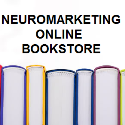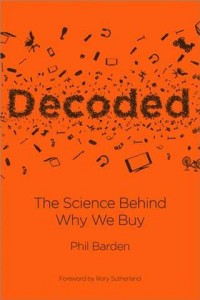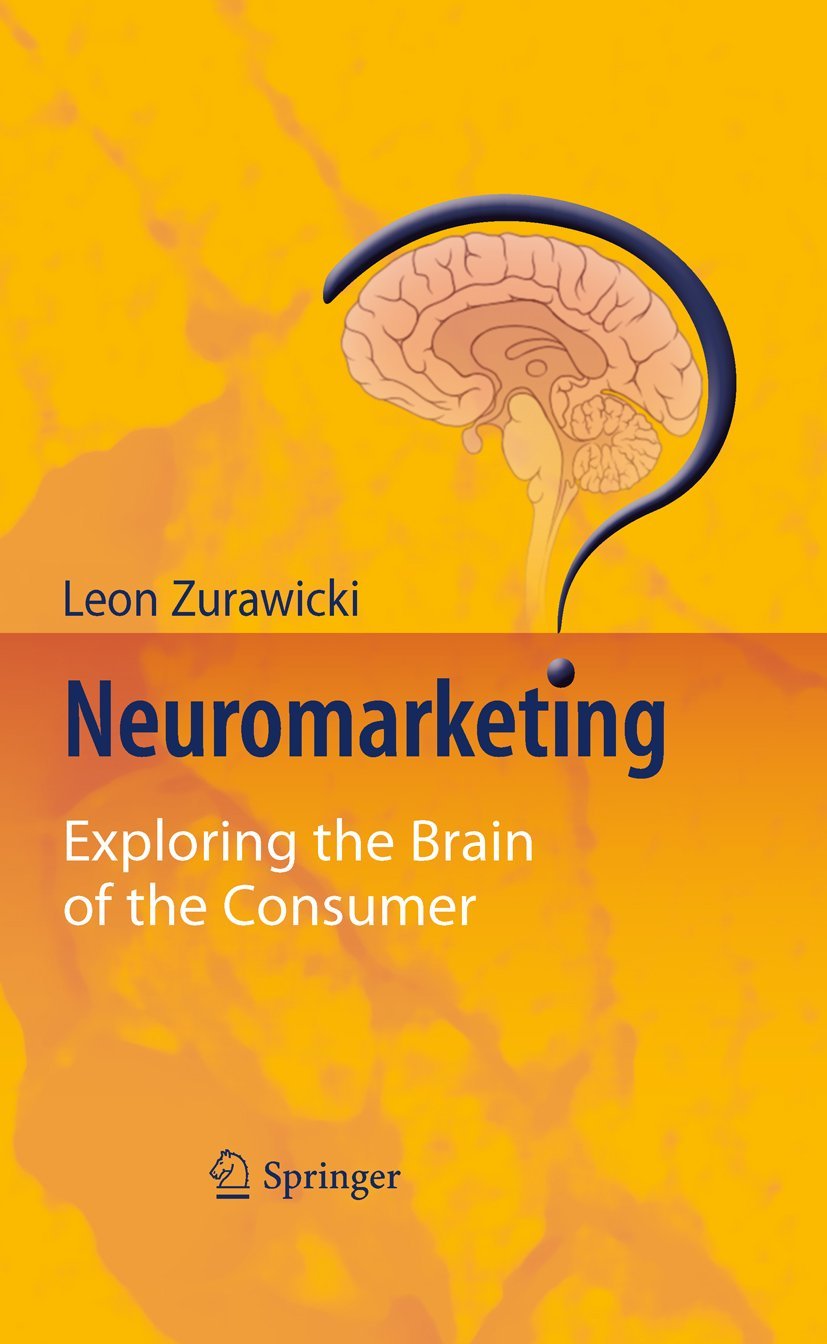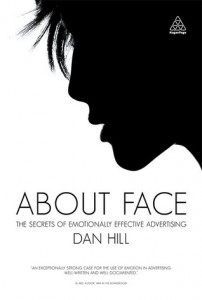2013 Neurotalent of the Year Competition
 Neuromarketing Science & Business Association organizes for the second time the competition Neurotalent of the Year. The Competition is open to students focused on consumer neuroscience, neuroeconomics, marketing, market research, neuromarketing or other relevant studies. Contestants have the chance to win €3000 cash and a free ticket to Neuromarketing World Forum 2014 (5th-7th of March 2014, New York, USA).
Neuromarketing Science & Business Association organizes for the second time the competition Neurotalent of the Year. The Competition is open to students focused on consumer neuroscience, neuroeconomics, marketing, market research, neuromarketing or other relevant studies. Contestants have the chance to win €3000 cash and a free ticket to Neuromarketing World Forum 2014 (5th-7th of March 2014, New York, USA).If the outcome of your research is valuable for business and you would like to meet the neuromarketing industry in order to tell them about what your work, then enter the Neurotalent of the Year 2013 competition now! For those who are not eligible to enter the competition, you may vote for one of the candidates until 1st of February 2014.

The participant with the highest number of Facebook likes and two participants chosen by NEUROHM and NMSBA become together the three finalists. From the three winners, the NMSBA and NEUROHM will choose the Neurotalent of the Year 2013, who will also receive a € 3000,- (three thousand euro) cash bonus. All three winners will receive professional training for their presentation during their stay in New York.
Benjamin DeVore – Lipscomb University
Companies spend millions of dollars on television commercials and, with little understanding of the neural impact created by media, they hope to elicit some type of emotional response in an audience. The current study looked to analyze emotional reactivity to television by using reality show clips, while analyzing heart rate variability and electrodermal activity, to measure changes in the physiologic state. Statistical significance was determined, which supported the hypothesis that people experience emotional reactivity while viewing different media types, in this case reality television.
Keywords: Affect, Skin Conductance, Heart Rate, Reality Television
Read More and VOTE »
——————————————————————————————————————————————–
Tomasz Zajac – Aarhus University
Keywords: eye-tracking, micro expressions, attention, neuroaesthetics, emotions
Read More and VOTE »
Khalid Nassri – CENTER FOR DECISION NEUROSCIENCE, DEPARTMENT OF MARKETING, COPENHAGEN BUSINESS SCHOOL
Keywords: Neuromarketing, Mobile EEG, Mobile Eyetracking, Prefrontal Asymmetry Index, In-store experiments
Read More and VOTE »
Haley Yarosh – Olin Neuropsychiatry Research Center, Yale School of Medicine
Keywords: social neuroscience, social media, observer
Read More and VOTE»
Dalia Bagdziunaite – Center for Decision Neuroscience, Department of Marketing, Copenhagen Business School
Compulsive buying – is it a lack of impulse control, emotion related issue or aberrant relationship between emotions and decision-making? Compulsive buying disorder is a repetitive chronic purchasing behavior overwhelming the urges. Recent eye-tracking study conducted at Center for Decision Neuroscience has shown that it should be understood as behavioral addiction rather than impulse-control disorder, highlighting the stronger bottom-up emotional impact on decision-making. The knowledge about the implicit and explicit aspects of consumer choice offers business an opportunity to reduce the unnecessary stimulation, design more consumer-oriented products, and target the right consumers, emphasizing the ethical marketing practice.
Keywords: Emotions, executive control, value-based decision-making, compulsive buying disorder, eye-tracking, EEG
Read More and VOTE»
Ingrid Rosca – University of Girona
Why consumer behavior based on emotional research is valuable for business? Our brains may process emotions before cognition.’ It is important to assess the factors that underline a behavior. I’ve adapted my research on Prof. A. Damasio’s theory of decision making combining it with less-is-more effects. I will demonstrate that a pattern of induced image consumers can influence business welfare. This is where emotions meet intelligence creating profit.
Keywords: behavioral economics, social psychology, neuromarketing, market research, conscious, unconscious motivations, brand image, consumer behavior, entrepreneurship
Read More and VOTE»
Luna Paladino de Souza – Pontifícia Universidade Católica do Rio de Janeiro (PUC-Rio)
The Neuromarketing´s field pops up within the large uncertainties of Marketing. One must go beyond subjectivity, whether of the researcher and / or researched. Such emerging methodology is objective, presents scientific accuracy and helps on the understanding of implicit processes that can not be made explicit: the emotional processes. In this context, this work sought to establish the degree of understanding and credibility of Neuromarketing, such as its potential in companies headquartered in Brazil.
Keywords: Market Research, Marketing, Neuroscience, Neuromarketing
Read More and VOTE»
Imane Bouzidi – Copenhagen Business School
We all know that brands can have an effect on our unconscious motivation systems and buying behavior. Throughout a behavioral and neuroscientific analysis I examined ´how the Starbucks brand affects the Danish consumer mindset`. In specific I explored how Danes relate to the brand in terms of their emotions and behaviors. Among several psychological brand aspects and consumer neuroscientific theories, the main focus in my study was put on two of the consumer´s motivational systems, namely: unconscious ´wanting` and conscious liking. The study revealed a connection between the level of brand -, recognition, preference, taste opinions (liking) and the amount of consumed coffee (wanting).
Keywords: Unconscious wanting, conscious liking, brand effects, brand preference, Starbucks, motivations system, consumer behavior, Danish consumers
Read More and VOTE»
Lars Frederiksen – Copenhagen Business School
Keywords: Eye tracking, scent marketing, consumer preference
Read More and VOTE»
Peter Lewinski – Amsterdam School of Communication Research
Keywords: Facial coding, facereader, advertising, neuromarketing
Read More and VOTE»
——————————————————————————————————————————————–




















